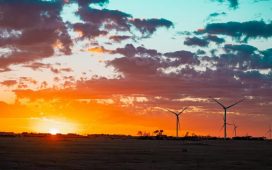In recent years ‘vanilla’ has got a bad rep as something basic, bland, and boring.
But this could be a classic case of ‘you don’t know what you’ve got ’til it’s gone’ – as the tropical orchid it comes from is danger of dying out.
It is one of the crops most sensitive to changes in temperature, and can already only be grown widely in a few countries in a labour-intensive process which involves hand pollination.
One of the alternatives if it did die out is a musky goo called castoreum found in the glands near a beaver’s anus, which you’re not likely to flavour your Victoria Sponge with.
An article in the New York Times this week lamented the possible fate of vanilla, saying it is used in products ranging from sweets to ‘pharmaceuticals, mosquito repellents, seltzers, makeup and hair products’.
The risk to vanilla has been under the microscope for a while, though, as floods, draughts and the decline of natural habitat make life difficult for the plant and the farmers that grow it.
Vanilla is listed as an endangered species under the Convention on International Trade in Endangered Species of Wild Flora and Fauna, partly because of its limited genetic diversity.
Most global production is in Madagascar, Indonesia and Mexico, and it’s not only the climate that is putting the vines and flowers at risk.
There have also been dozens of reports of ‘vanilla murders’, as the spice grows in value and becomes a target for criminals.
Farmers told of putting up tripwires and armed guards to protect their crops, with vanilla worth more than silver gram-for-gram in 2018.
A study in Sustainability in 2022 told how global vanilla production ‘has been reduced by the influence of diseases and premature fruit drop, factors associated with periods of prolonged droughts and high temperatures.
Products at risk from a world without vanilla
- Ice cream
- Cake
- Chocolate
- Vanilla Coke
- Skincare products
- Perfume
- Candles
- Air purifiers
- Make-up
- Mosquito repellant
‘Vanilla cultivation is considered especially sensitive to climate change because its genetic variation in crops is very low; therefore, it has a limited response capacity to the proliferation of diseases, prolonged drought events, and thermal stress.’
If vanilla died out, you could still buy vanilla-ish things flavoured with vanilla essence, but the flavour would not be exactly the same and you may well pick up a less natural and bitter aftertaste.
Vanilla extract and vanilla paste are made with real beans, while cheaper vanilla essence uses artificially made vanillin (the compound which gives vanilla its flavour).
You could still get synthetic scents but it would be missing the full body of real vanilla.
Even the beaver secretions are very expensive, so that probably wouldn’t be an option either.
Get in touch with our news team by emailing us at webnews@metro.co.uk.
For more stories like this, check our news page.
MORE : ‘Fire clouds’ that spit lightning are now something we need to worry about
MORE : Why is an iceberg bigger than London just spinning in place in the ocean?
MORE : All the times wild weather almost ruined the Olympics
Get your need-to-know
latest news, feel-good stories, analysis and more
This site is protected by reCAPTCHA and the Google Privacy Policy and Terms of Service apply.












